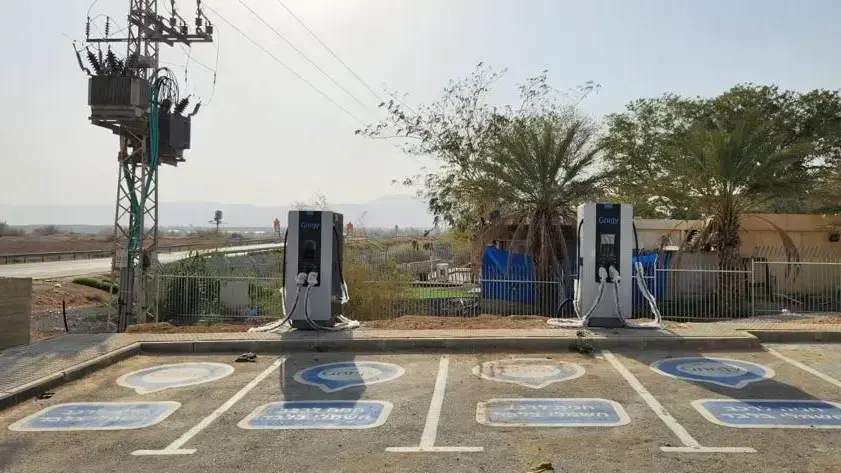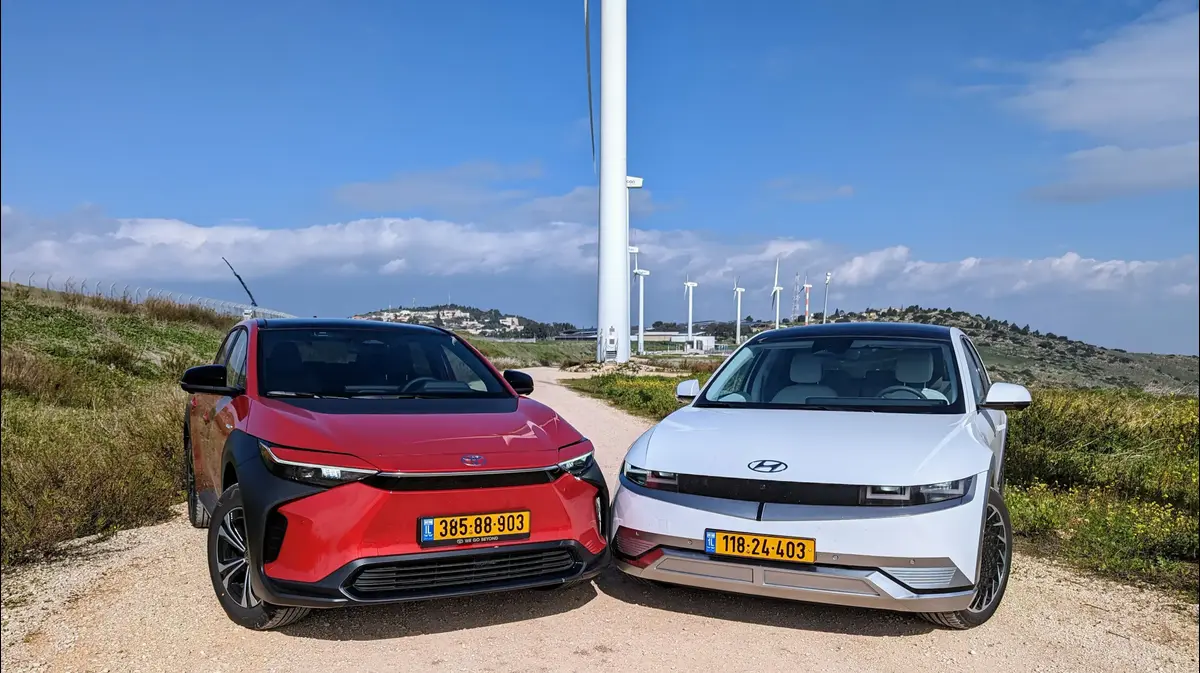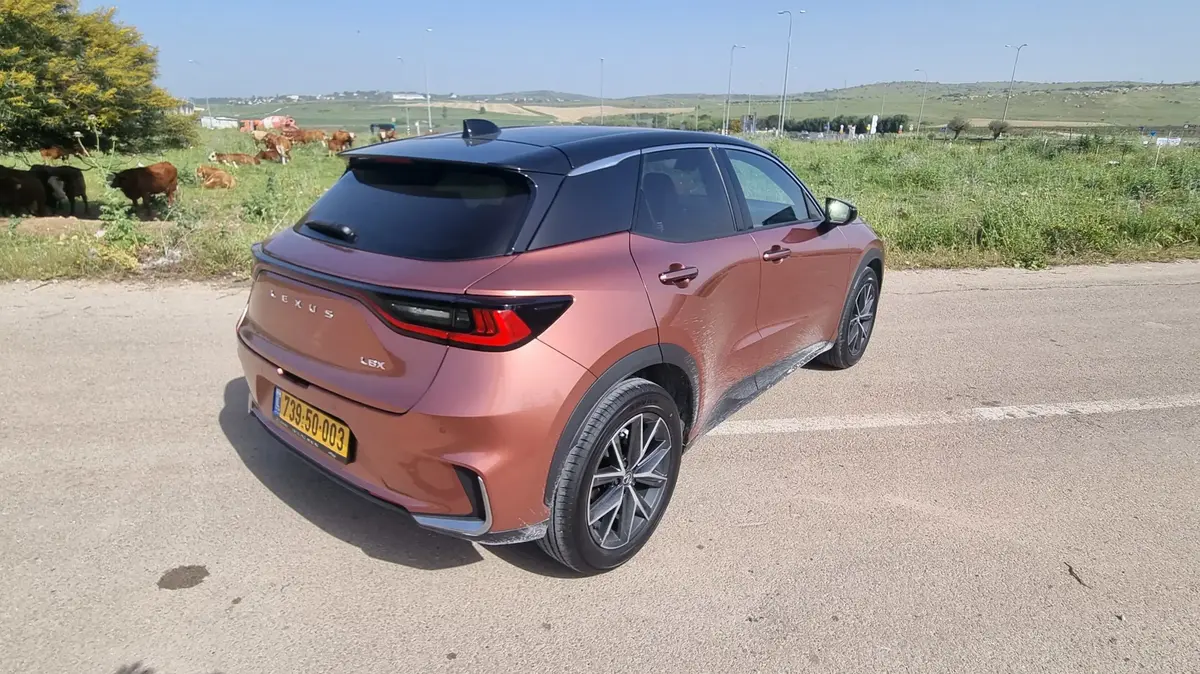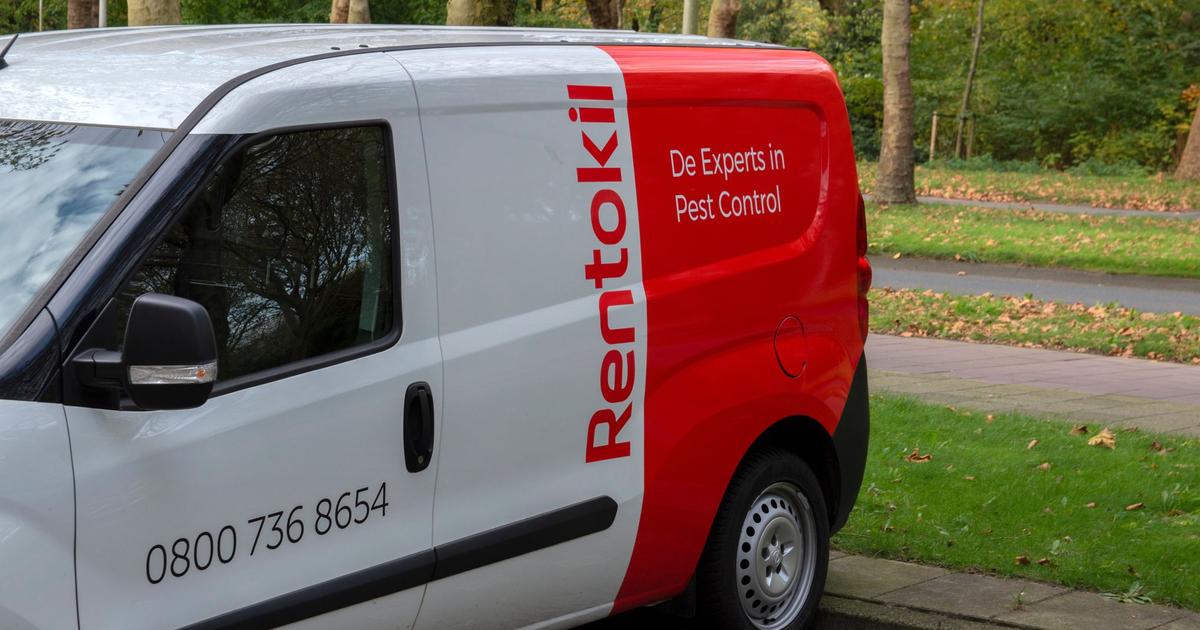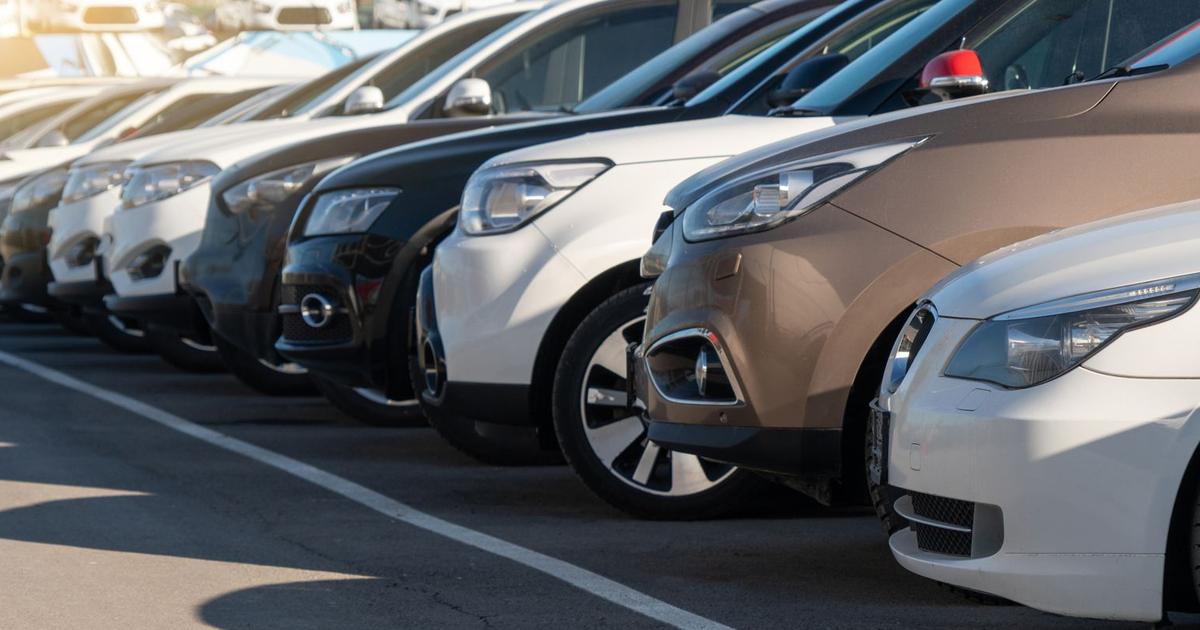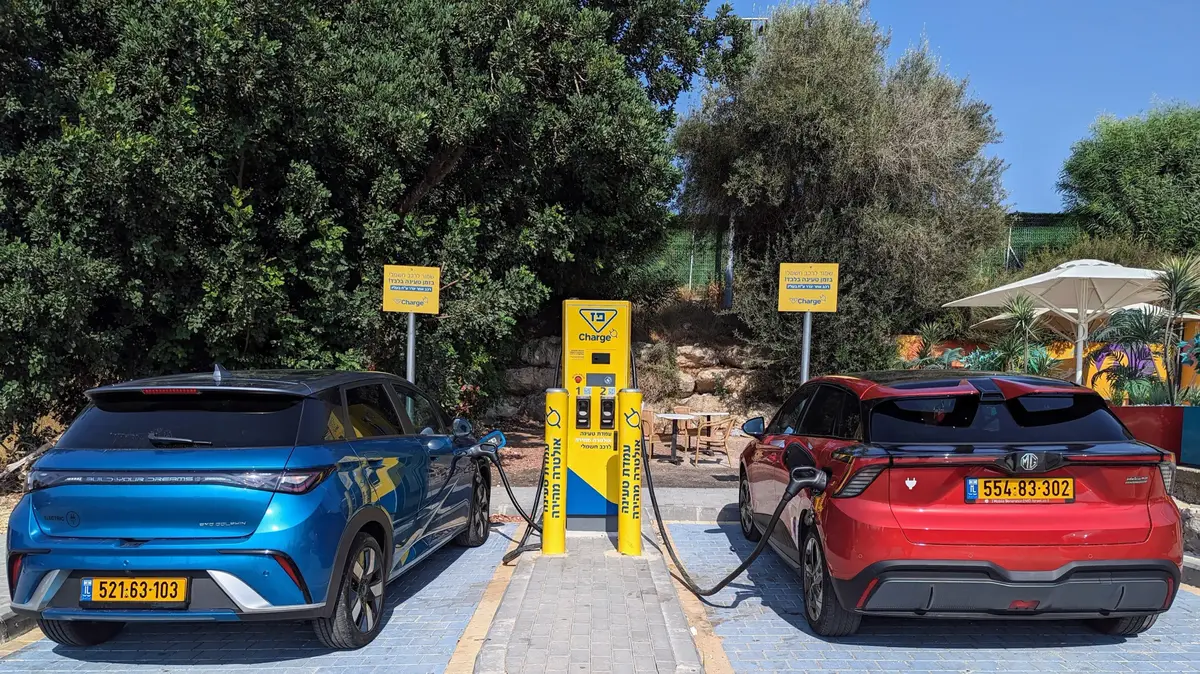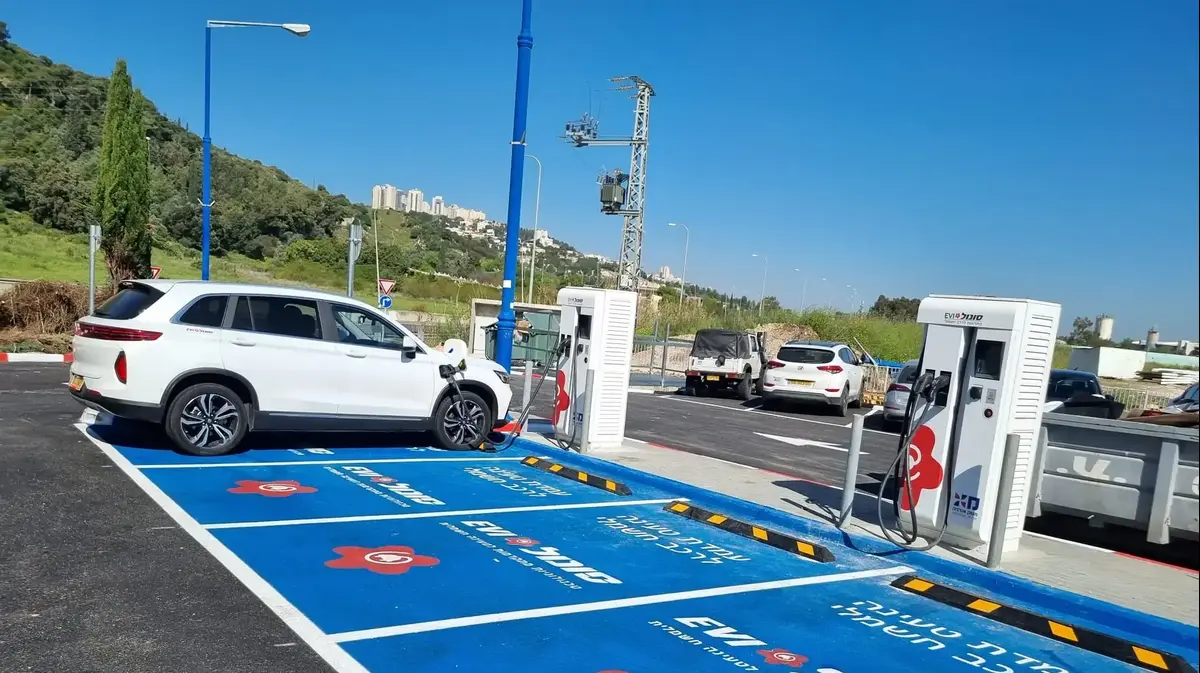In the coming days, a new electric vehicle charging complex established by the Jinergy company at the Lido intersection, on Route 90 in the north of the Dead Sea, will begin operating.
Possibility of fast charging of 4 cars at the same time, and in the future of 6. Good news for many drivers on the way to Eilat, Jerusalem and the Bekaa, but also a snapshot of the government's dealings with the electric revolution.
The beginning was positive: at the end of 2018, Jinergy won the Ministry of Energy's tender to receive a subsidy for the establishment of high-speed stations in the place where the Better Place battery exchange station operated until about a decade ago.
But since then things have only gotten more complicated.
Initially, the Civil Administration refused to approve the works, due to a ban on new electrical connections in the territories.
It took an effort by the Ministry of Energy, the Arava Regional Council and the neighboring Beit Arava kibbutz to convince that this is not a new settlement.
And then the corona virus.
Then the electric company announced that the transformer in place, which is mounted on a pole, was no longer up to standard and had to be replaced.
The camel that is in the complex for paid photos with tourists has already been called the electric camel by all those involved.
Or tu tu he will have new visitors.
After almost five years of bureaucracy, the new fast charging complex in the northern Dead Sea will start working (Photo: Jinerji)
Ran Aloya, CEO of Ginergy (Photo: Ginergy)
Ran Aloya, CEO and founder of Jinergy, did not give up on the difficulties. The company, which he founded back in 2007 and was already geared up for electric vehicle charging, has become one of the largest in Israel in the field of charging, and currently employs about 130 people in Israel, 30 in India and - 4 in Spain. Two years ago, Idan Ofer's OPC purchased 51% of the company, for NIS 67 million. OPC is also the largest private electricity producer in Israel, and thus Jinergy can better control the cost of its important resource, and also sell electricity to charging customers Beiti.
"We already have 27 fast charging complexes throughout the country, but this is only part of our activity," says Eloya. "It is not yet clear how many of the future charging outside the home will be done in such complexes, and how many at the gas stations.
Today they sell almost 100% of the gasoline and diesel, the question is what will be their share in charging?
70%?
80%?
90%?".
So why are you in the charging business?
"Because there is a market failure here. The fuel companies have a complete advantage in locations, but they have no interest in promoting the electric revolution. At the conference, I asked the CEO of one of the fuel companies what in his estimation the share of streetcars in the market will be 50% in 5 years?
said no
I asked 20%?
said no
Did I ask more?
I then asked how many do you think, will there be more than that?
He said an electric vehicle won't catch on."
"The gas companies aren't really there.
It's not in their DNA.
The fuel companies have real estate assets and locations in the form of the stations, but it is not easy to turn it into electricity. In terms of building laws, the availability of electricity, and above all the motivation."
So what is your model?
"The model is a world of services like in cellular. In Europe, companies like ours are called electric mobility providers. Did cellular companies set up antennas so that there would be reception? We set up public charging stations. Did the cellular company sell you a phone? We sell you a home station. Cellular company sold you airtime I sell you electricity. Do the cellular companies provide businesses with a full package of devices, reception and collection? We do it by charging. We don't invent anything."
Why not import an electric vehicle?
"That's not our focus."
Solar charging?
"It's closer, but it's not our field."
Eric Naman, Vice President of Ginergy (Photo: Ginergy)
The complex in Lido was already built according to the understanding that the need today is to build complexes that can charge several cars at the same time.
"In Shafiim we have a complex for charging 6 cars at the same time, and we have prepared an infrastructure for 10, just to bring 2 more double charging stations in a crane as soon as the demand is justified," says Eric Naman, VP of Marketing and Sales. Jinerji will also build 250 this
year Fast charging stations for electric buses, in Karmiel, Kfar Saba and Or Yehuda, after having already established such stations in Rishon Lezion and Ashdod. But a central part of its activity is the management of charging in approximately 200 private and commercial buildings, with 22 thousand private and business slow stations.
"There are many companies from Akhir in the field, who sign buildings and then come to us and try to sell us the contracts, which we will install. It's just that in order to bypass the other companies, they offer uneconomic contracts that will not allow the tenants to receive quality service. If in your building you are considering installing managed charging in the shared parking lot, ask The company that is making you an offer has already installed several buildings. Go see and talk to the tenants there and hear their opinions."
Na'am: "We offer the buildings electricity at a domestic rate all year round, except for the peak hours of electricity prices between 17:00 and 22:00. We pass on to the tenants the discount that we obtain in the electricity prices. Even at our high-speed stations, our regular customers at home pay only 99 Pennies per kWh at most fast stations.
We see a lot of Tesla owners.
Mainly from those who bought in the hype of the beginning and still don't have a position at home."
Is the talk that in 2030 only new electric cars will be sold in Israel realistic?
Aloya: "Actually, we depend on what will happen in Europe. The car importers sell cars with European standards and will only be able to bring what the manufacturers produce. No manufacturer will then produce non-electric cars with European standards, especially for Israel. But I estimate that even in 2030 there will still be a few gasoline vehicles sold here / hybrids, and maybe also in 2040. In the end, it doesn't really matter if there will be 2 or 2.5 million electric cars in Israel by then. The main thing is that it's not just half a million. The electric revolution will not reach everyone at once. Just like in the beginning cell phones were only for business people and then for parents. But The question regarding an electric vehicle is no longer 'if', but only 'when'".
vehicle
car news
Tags
charging

